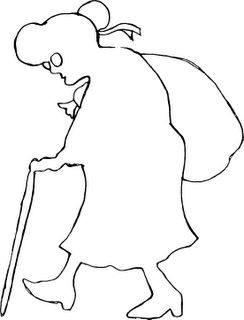…why do not all the Catholics who disagree with the Pope just get out?… Who am I—or who is anyone except the Pope—to decide what a Catholic may or may not accept as binding doctrine? …the question is based on an assumption that is not only challengeable but extremely unhealthy. It assumes that the whole test of Catholicism, the essence of the faith, is submission to the Pope… It is not a position that has a solid body of theology behind it, no matter how common it is as a popular notion… [p. 6]I have a number of friends who are active Catholics, who disagree with much of Church teaching on ordination, gays, birth control—basically the big, hot buttons. So long as they remain an indistinguishable part of the flock, neither occupying leadership positions in the Church nor serving as elected government officials, little will happen to them. It’s priests who would rise in the hierarchy, theologians who teach in Catholic institutions, writers who publish under Church imprimatur, and politicians whose votes are a matter of public record who are vulnerable to being silenced.
Saturday, June 25, 2005
So who else is Catholic?
My long-intended follow-up to this has been delayed mostly by clumsy attempts to understand the issues facing Catholic dissenters. It also seems somewhat presumptuous, as I’m not Catholic—what can an outsider know and feel? But because the Anglican Communion has been in conversation with Rome for quite some time, exploring common ground (raising some Anglicans’ hopes for reunification), it does concern me.
Garry Wills in “Papal Sin: Structures of Deceit” has nailed one piece I’ve been struggling with:
Sunday, June 12, 2005
Returning to letting go
Today was the first time since September 28, 2003 that I’ve attended a Sunday morning Eucharist in an Episcopal church. It is only the third time I’ve received the Eucharist in an Episcopal church during my sabbatical, the previous times having been at funerals this year. It’s about the fourth time I’ve attended church on a Sunday morning, the other times being a visitor at my friend Dash’s Lutheran church about 600 miles from here.
The Gospel for today [Matt. 9:35–10:8; Jesus sends out the disciples to proclaim the Gospel] is one that has been in the back of my mind for several years now; first, when considering leaving my former parish, and then throughout the extended leaving process.
The last verse included by the lectionary compares the fate of unreceptive houses and towns with that of Sodom and Gomorrah. So the preceding verse, which instructs the disciples to shake the town’s dust off their sandals, has always seemed an inextricable part of a curse—“I shake your dust off my sandals, you—you—you bad, bad people!” (with emphatic fist-shaking, if the dust is all off).
Maybe a year ago or more, a different possibility was posed for me (I wish I could remember by whom). Shaking the dust off one’s sandals makes a lot of sense from a psychological standpoint: if one concludes that one’s actions are of no use, it’s best to let go of the situation. Even the dust is excess baggage. Move on.
With that in mind, I’d resolved to not harbor bitterness over my former parish. In a situation where I’d actually had the chance to make a difference but failed, I did at least come to an understanding of the problem. That helped an awful lot in letting go—I’m not sure where I’d be now without that understanding.
The church I attended this morning is one where a friend of mine (a fellow refugee from my old parish) has “landed.” I will probably also begin to check out a couple of others in which I’ve been interested.
As I’m still pondering some theological concerns (about which I haven’t even begun to blog), it’s impossible to know where I’ll end up. It would be nice if I’d shaken all the dust off, but I guess I haven’t finished, as I’m still somewhat numb.
Subscribe to:
Posts (Atom)
